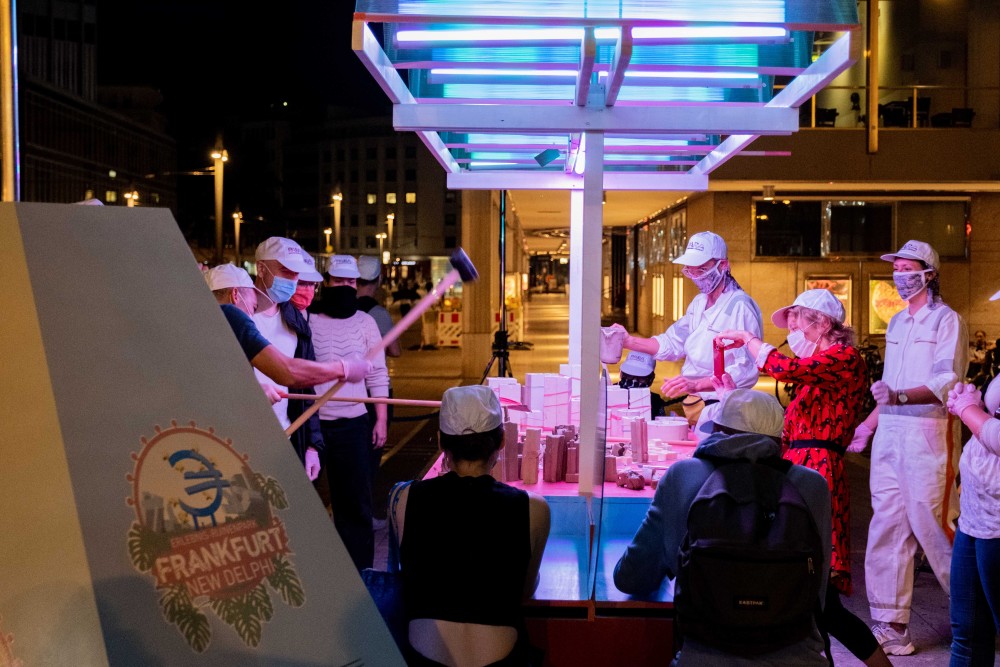Speculative Ruins - Ruins of Speculation
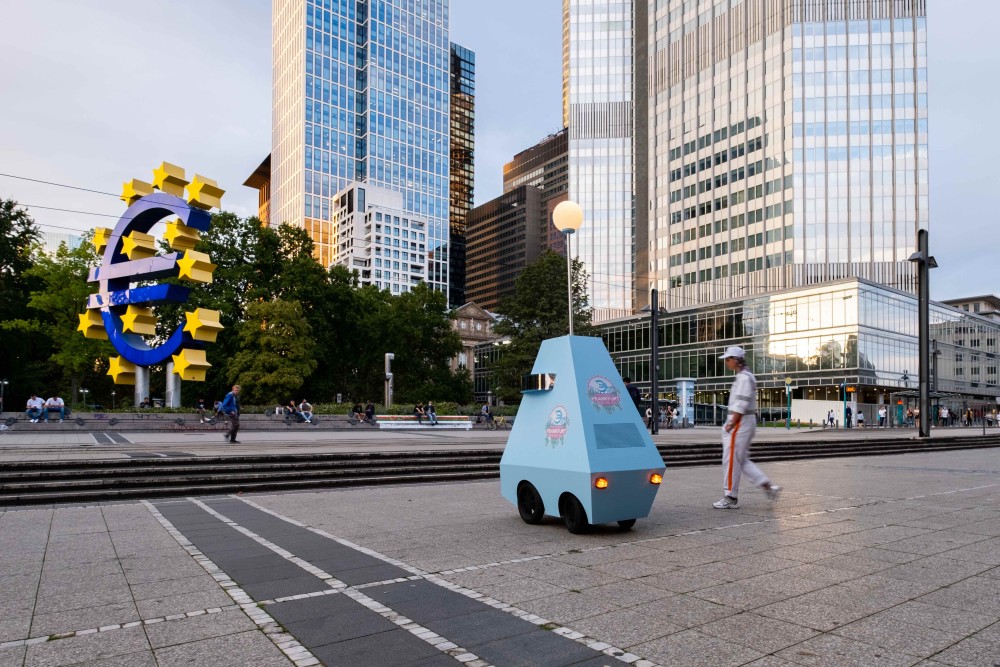
Archeological Park Frankfurt New Delphi
Located at a junction of of the geographical, ideological and data traffic networks of the Speculative Age, the Frankfurt New Delphi Archeological Park offers unique impressions of the practices and forces that were at work here centuries ago. Immerse yourself in the world of "futures", "projections" and "crises". Experience the power of "evaluation" and "consultancy" and discover the secret of those temples whose remains today jut into the wildly jagged horizon.
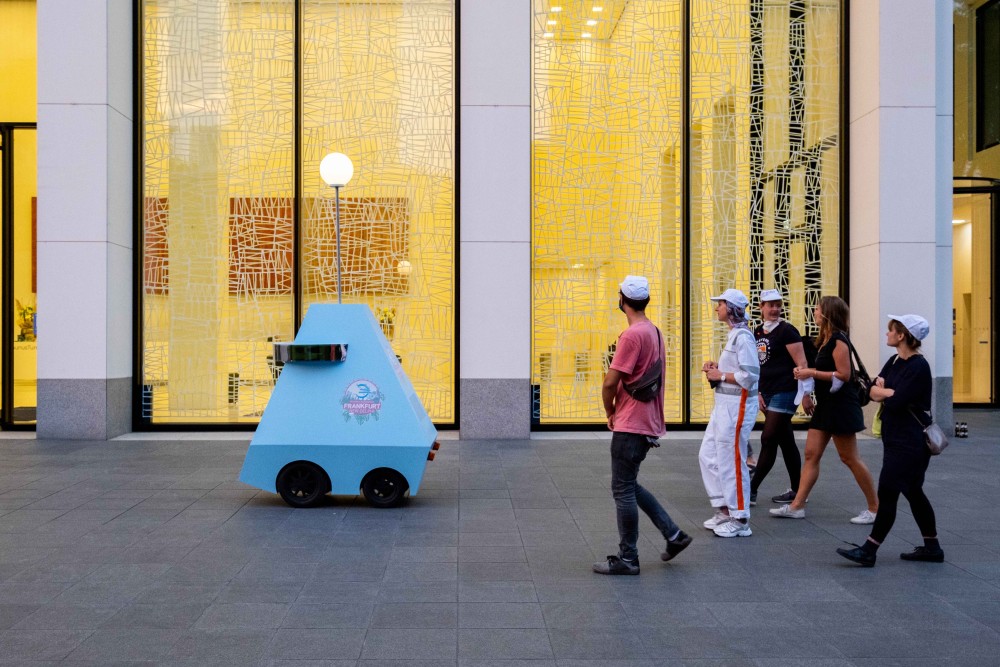
The interest in statistical formulas and instruments that made it possible to anticipate today what might happen tomorrow, as well as the way they incessantly sent each other messages about occurrences that had yet come to pass, suggests that people in the first half of the twenty-first century were obsessed with thinking about the future. One can even say that people in this era lived exclusively in the future and that what they thought was the present was ultimately only a variant of what awaited them.
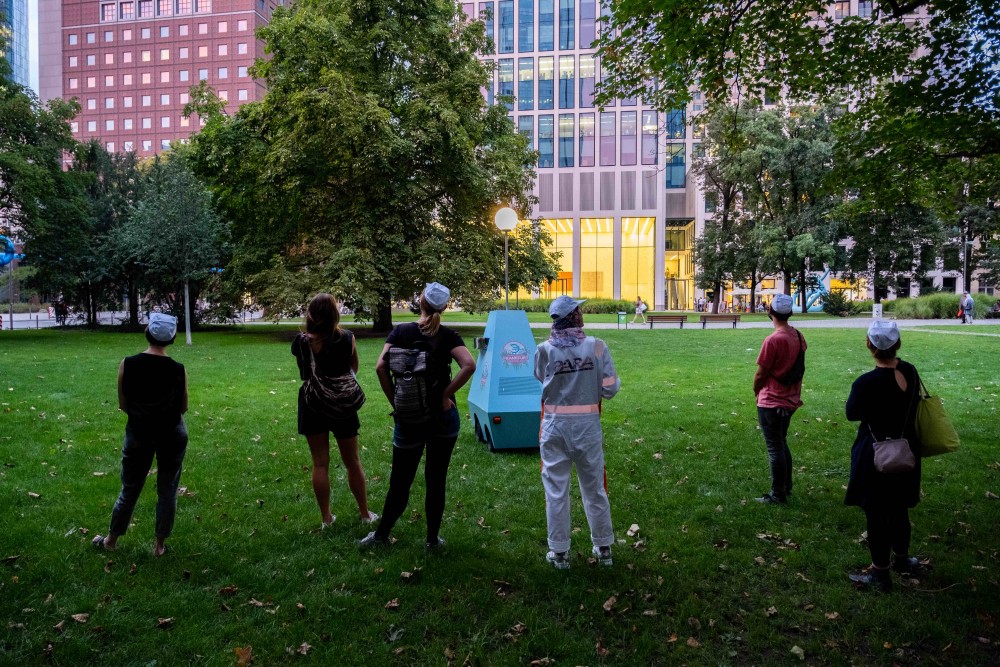
The remains of the buildings and cultural artifacts, which had previously been owned by a small part of the population, suddenly belonged to everyone. As can be inferred from consistent sources, the non-profit "Trümmerverwertungsgesellschaft" took over the crushing and removal of the city. Long rows of figures prove the great success of this operation. Countless Frankfurt residents participated in the recycling of the rubble. Specially constructed railway lines piled up what had previously been Frankfurt into a 200m high mountain. Next to it, a huge factory was built in which the city's architectural heritage was ground to dust. The granulate of the destroyed Frankfurt was mixed with cement and used to pour the foundation stones for a new Frankfurt.
This "Frankfurt model" is considered the model for the construction of the Frankfurt New Delphi Erlebnis-Ruinenpark.
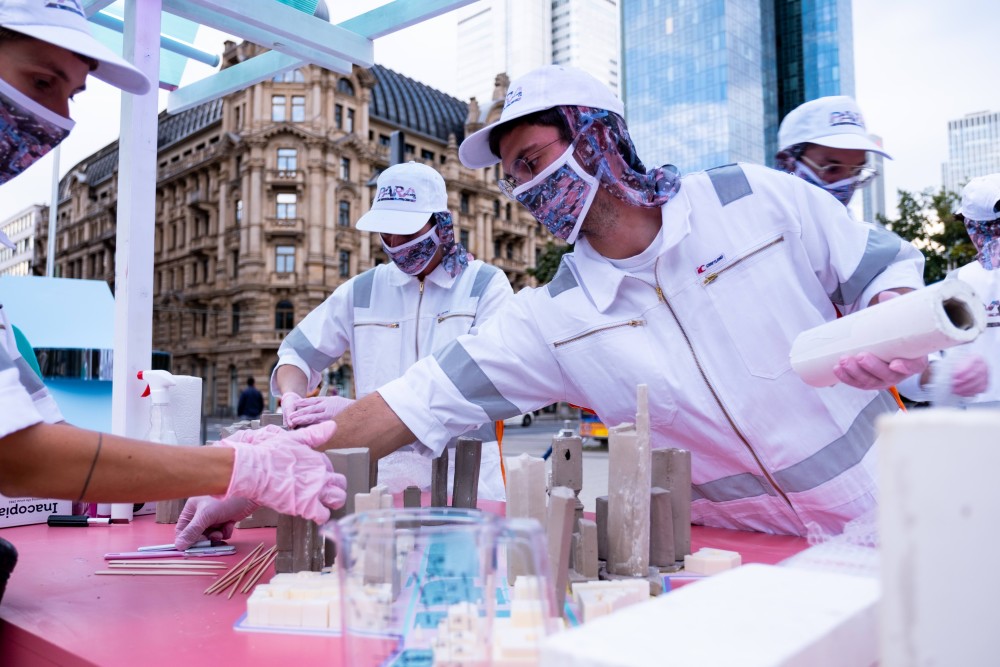
Team
Concept, performance and creative direction: PARA.
In collaboration with: Chiara Galesi, Hanna Steinmair, Lena Brandt, Anton Steenbock,
Documentation: Christian Schuller
